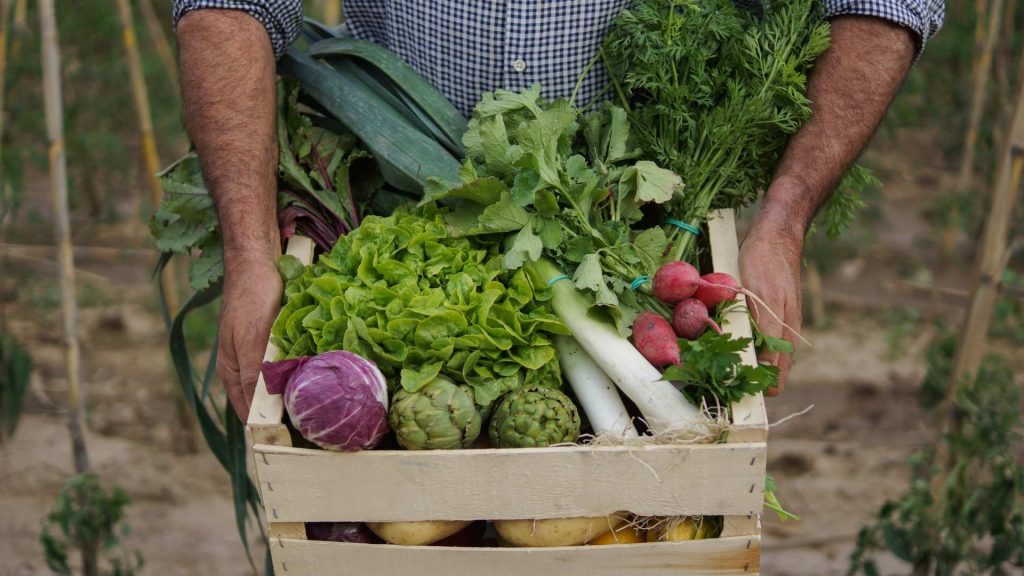“Natural, organic and unrefined foods speak a language your genes understand. And when your food communicates nicely with your genes, they’ll express themselves properly and healthily, so you can begin feeling that you’re actually living and not just surviving.” – Author: Thorbjorg Hafsteinsdottir
Are you reading this blog because you have a subtly innate feeling that something is quite not right with the quality of a large proportion of the available foodstuffs today?
Well, it is factual to say that a high percentage of these above mentioned foodstuffs are treated/refined, by both mechanical and chemical processes.
That said, the good news is, that as a paying consumer, the power, and choice, is firmly in your hands (and subsequently your mouth).
What is organic nutrition?
In practice, organic farming avoids the use of chemical fertilisers and pesticides, requires the highest standards of animal welfare (including no antibiotics or growth hormones), does not permit the use of genetically modified organisms (GMO’s), uses less fossil fuel energy per calorie of food produced, protects our biodiversity by maintaining suitable habitats for plants, animals and wildlife, and encourages people to buy their food locally, and in season.
However, a point of consideration, in relation to locally sourcing foodstuffs, is the fact that, among certain shoppers, the cry out for ’organic’ has outweighed the demand for ’local’, meaning that some people would rather eat organic produce that has been flown halfway across the world, than buy locally grown produce which may have been in contact with chemicals. The fear of chemicals and what they do to the body is now a bigger concern for some Irish shoppers than how the local farmer makes their living.
Therefore, farming systems that strictly adhere to the above codes of practice, provide the end consumer with foodstuffs (both plant and animal) that are not only fit for human consumption, but are more aligned with nature, nourish our own internal ecosystem, provide more essential nutrients, help protect our health (both mental and physical), and ensure that the appropriate respect is afforded to all involved.
We do not own nature, but are simply a small part of it. Once this is recognised, we begin to understand that nature-harming is, in essence, a form of self-harming. In simple terms, the further we move away from nature, the sicker we become.
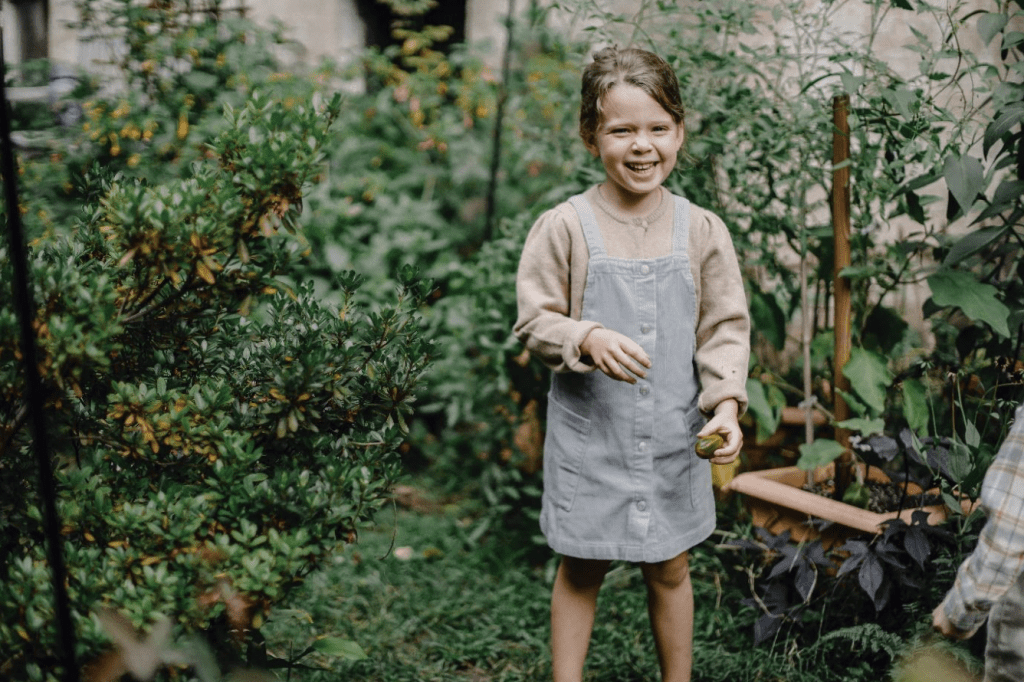
Irish organic regulation
From an Irish perspective, organic foodstuffs carrying the IOA (Irish Organic Association) logo have been produced to the highest standards. It is produced according to organic farming principles which are committed to working in harmony with nature, rather than against it. A primary objective is to work within the natural confines of the farming ecosystem, to provide the end consumer with great tasting natural foodstuffs.
The other certified Irish organic awarding body is Organic Trust.
Organic farmers rely on crop rotation, cover crops and dense planting, rather than toxic and persistent pesticides, herbicides, and synthetic nitrogen fertilizers to enrich the soil in which they grow their crops. To earn organic certification, land must be handled without prohibited materials for at least three years.
Consumption and popularity
The demand for organic vegetables and fruit continues to grow in Ireland. This is confirmed by OGI (Organic Growers of Ireland) members, both small and large, who have seen a huge growth in demand for Irish organic produce year-on-year.
The Covid-19 pandemic has contributed to the increase in demand, but the growth trajectory was well in place before this, and has not shown signs of abatement.
A recent industry report found that in the five years, from 2015-2020, there was steady growth of up to 20% each year in the volume of sales of organic vegetables sold through Irish retail multiples. This increased by 25% in 2020, and it predicts further future annual growth of 10-20%.
This consumer awareness, coupled with the steady rise in popularity of local organic produce, is a real positive for the hard-working Irish organic growers. It’s really refreshing to see that an increasing number of people are requesting more and more Irish grown organic vegetables, supplied at local level, as they see the benefits across a broad range of areas, such as personal health, climate change mitigation, and the preservation of biodiversity levels, to name just a few.
The moving away from a reliance on mass produced, highly processed, and poorer quality produce from big corporations, and the returning of support to local communities should result in more options and better choice, as public interest increases.
Farmers, like everyone else, need to make a living, but a balance can be struck between profit and a respect for nature herself. It’s a winning formula for all involved.
However, it’s essential that organic farmers are supported/equipped, in order to grow in line with rising market demands, both locally and nationally.
Parallel to this, any member of the farming community that wishes to make the change from non-organic to organic practises also needs the utmost support, as such a transition requires time and patience. This fact cannot be overstated! Globally speaking, some supposedly authoritative experts are using the environmental protection agenda to push completely unattainable objectives on such farmers, thereby creating a potential disaster for the livelihoods of individual farmers, and the wider communities in which they exist. Think of the Netherlands.
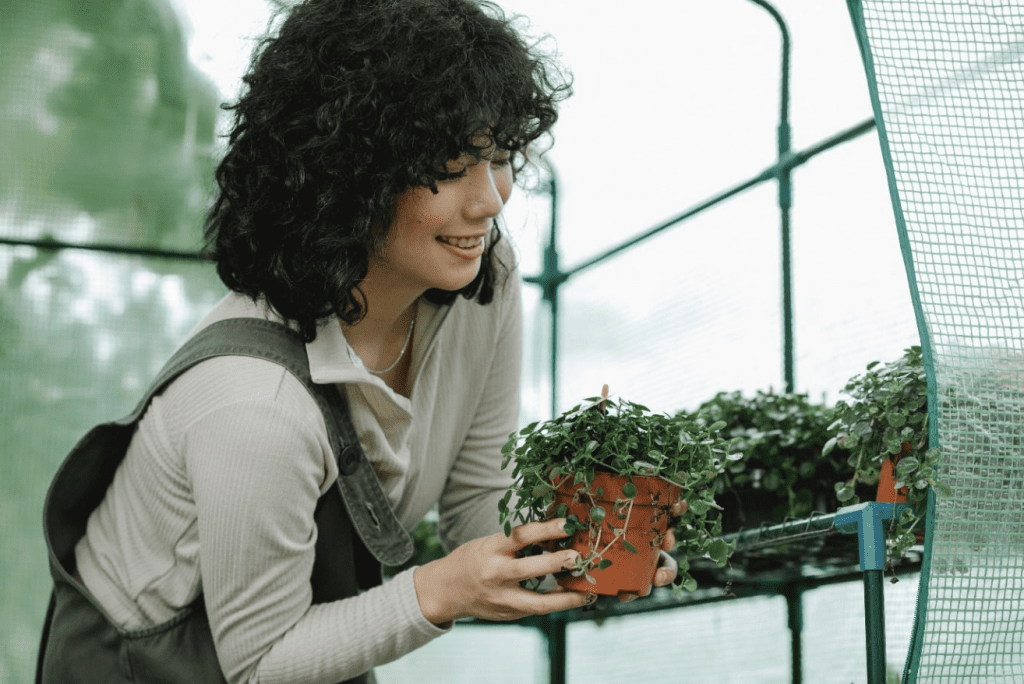
A very legitimate concern that arises, and has proven to be quite contentious, is in relation to there being enough food for everyone, without industrial farming. It is estimated that the global human population will rise to approximately 10 billion by the year 2050, and that’s a lot of people to feed.
Bringing more land under agricultural production is one answer to filling this gap, but it cannot solve the problem alone. Finding that amount of land in suitable conditions would spell the end for many of the earth’s remaining forests, peatlands and wild areas, and release the carbon stored in them, thus hastening climate change. Added to this, the practices of intensive farming, coupled with pesticide and fertiliser use, have already had a huge effect on biodiversity and the environment worldwide.
Some conflicting reports, in relation to the required quantities of food production, needed to feed the global population, have been produced. Within this, certain common ground exists, around the point that global agricultural output is on the right trajectory, but its environmental performance is going in the wrong direction. Approximate figures suggest that agriculture accounts directly for 11-13% of greenhouse emissions, and indirectly for another 12%.
With our climate increasingly unsteady, we can’t afford to continue with current methods that erode soil and pollute the environment. And this is why the myth that organic food can’t feed the world isn’t just wrong, it’s downright counterproductive.
Organic methods can produce competitive yields in good weather, and outperform conventional in times of drought (as much as 40%) and flooding. Also, organic uses less energy and generates fewer emissions, while revitalizing the soil and sequestering carbon.
If we are going to decrease farming’s impact – and we must decrease farming’s impact – then we need organic, because farming doesn’t only contribute to climate change – it’s greatly affected by it. And, it is getting harder and harder to grow food in extreme weather. The emphasis of organic is typically less on maximizing crop yields, and more on creating healthy, resilient ecosystems.
The Rodale Institute’s Farming Systems Trial is the longest-running side-by-side trial of organic and conventional in North America, and their data shows that organic yields are competitive with conventional yields after a five year transition period. That said, it must be recognized that the trial was conducted in Pennsylvania, and isn’t reflective of growing conditions the world over.
A point of vital importance is the fact that approximately a third of the food that we produce globally gets wasted. This astonishing figure is definitely something that all of us, as individuals, can look at, and determine to take responsibility to play our part in addressing this shocking statistic.
For me personally, the bottom line is that our growing population needs farming methods that conserve and regenerate resources, while generating healthy food.
Health/environmental benefits
So, why is all of this so important? Well, on a more personal level, why is it not? What do you think?
I myself believe that we have swiftly, yet subtlety, moved into an age of convenience and disposability. We are finding it harder to make decisions for ourselves, or we simply don’t care.
“As for butter versus margarine, I trust cows more than chemists.” – Author: Joan Dye Gussow
The importance of our individual (and collective) health was laid bare during the recent Covid-19 pandemic. The mainstream media did an excellent job of bombarding the public with a daily feed of facts and figures, but was literally devoid of any information related to the link between good nutrition and good health. At the very least, motivations and affiliations should be questioned.
Therefore, it becomes obvious that we, as individuals, need to inform/educate ourselves around the many health benefits of consuming nutrient-dense, unprocessed, clean organic wholefoods. Do you want a multinational corporation to select, prepare and cook your food, or do you want to do this for yourself? My time at the IINH completely solidified my belief in this, both from a tutorial, and cooking weekend perspectives.
Like wealth, land ownership is becoming concentrated into fewer and fewer hands, resulting in a greater push for monocultures and more intensive industrial farming techniques to generate greater returns. 1% of the world’s farms control 70% of the world’s farmlands.
The biggest shift in recent years, from small farms to big farms, was in the US. The principal danger of private farmland owners like Bill Gates is not their professed support of sustainable agriculture often found in philanthropic work – it’s the monopolistic role they play in determining our food systems and land use patterns.
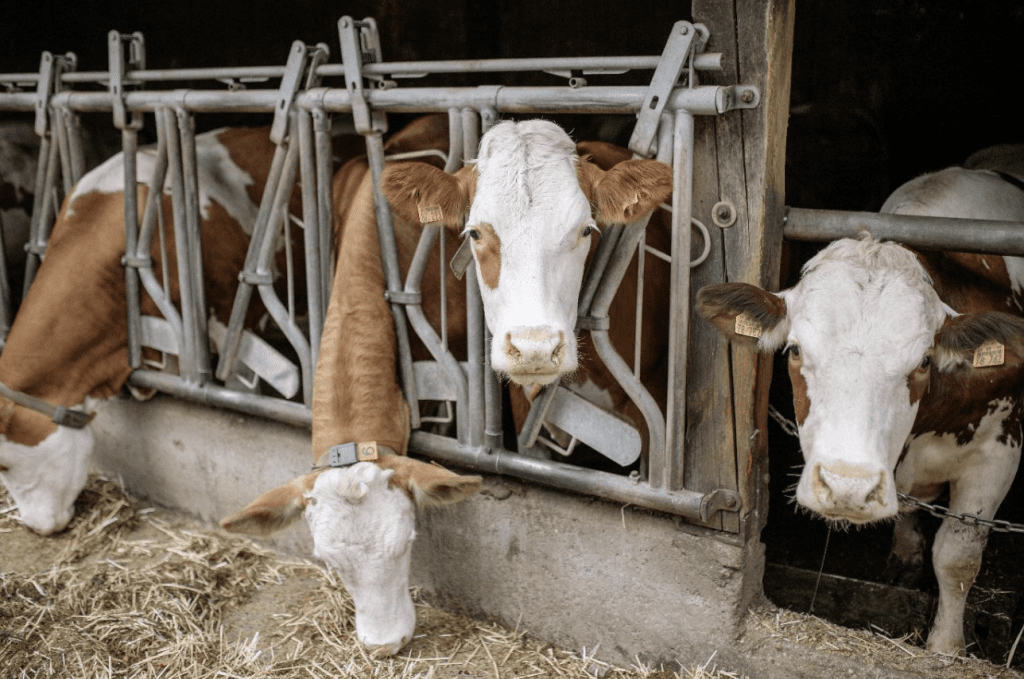
Industrial agricultural practices have significant health implications. Common practices and production inputs, used to maximize yields, negatively impact human health and environmental conditions.
Farmworkers, and owners, face a myriad of health risks, including chronic, and acute, exposure to pesticides, and high risk of injury. Routine antibiotic use in animal agriculture contributes to antibiotic resistance, diminishing the effectiveness of these drugs when necessary for human use.
Contaminants, including pesticides, nitrates and phosphorus, impact ground and surface water quality, affecting both urban and rural communities. Synthetic fertilizers deplete soil health, and require intensive use of fossil fuels to produce. Lastly, emissions and pollution, resulting from all stages of agriculture, from production (pesticide drift and methane) to distribution (carbon dioxide) affect air quality and contribute to climate change.
An extremely important aspect is the devastating effect that agricultural chemicals can have on the human microbiome.
The popular/common product “Roundup” is a systemic, broad-spectrum glyphosate-based herbicide. Glyphosate (the active ingredient) is actually a patented antibiotic, and antimicrobial agents can drastically alter the composition of the intestinal and oral microbiota contingent on the spectrum and dosage, route of administration, and treatment duration. A reduction in microbial diversity is often observed within days of ingestion of antibiotics, and complete recovery of initial bacterial community is rarely achieved.
Sources of organic foodstuffs
Organic foodstuffs can now be sourced by consumers in literally every country around the world. From an Irish perspective, some good options are currently available, but with room for vast improvements.
Currently, organic foodstuffs/products are available in supermarkets, health stores, speciality stores, community gardens, directly from individual farms, and the option to grow your own.
Dunnes Stores has embraced the idea that some consumers want the organic option, and have provided such for the last number of years, sourcing an array of vegetables, fruits, dairy products, and some meats. They have also engaged in a partnership with Nourish (an Irish family run business of health food stores), thereby creating greater choice under one roof. Lidl also provides a good continuous supply, as does SuperValu, with Tesco becoming more aware of consumer demand, and recently beginning to cater for this. However, as previously stated, there is great room for improvements to be made.
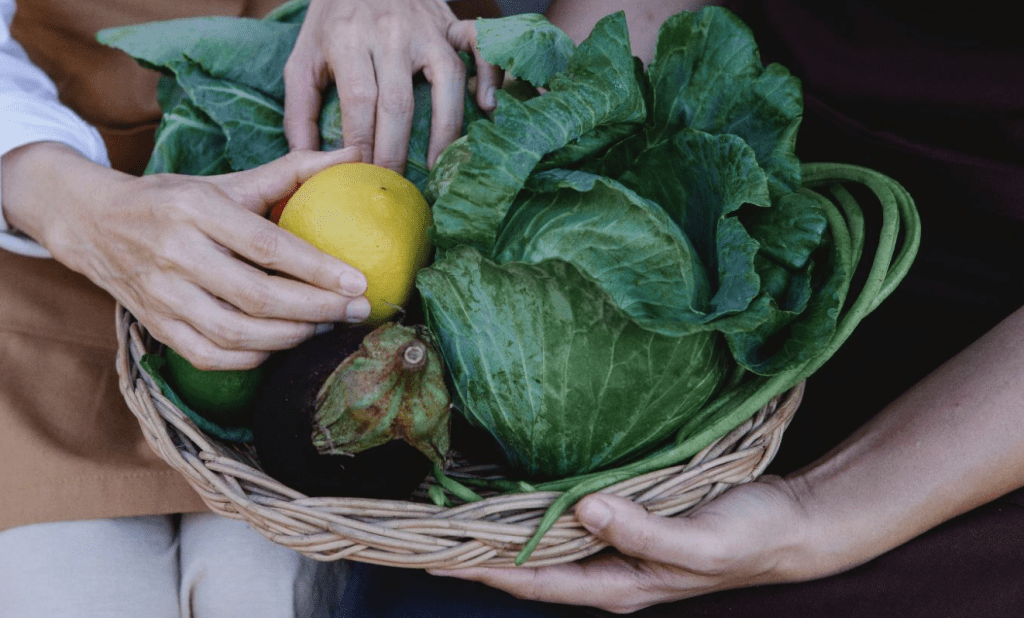
An important point worth mentioning is the pretty continuous availability of cruciferous vegetables, such as broccoli, cauliflower, cabbage, kale, Brussels sprouts, etc. These vegetables contain glucosinolates (compounds that give these dark green plants their bitter flavour), with research showing that they have strong anti-inflammatory and antioxidant properties, helping to protect our cells (and we have around 37 trillion of them) from disease-causing damage. Also, they are rich in many vitamins and minerals, sulforaphane (a natural plant compound), some protein, fibre (essential for digestive health), and a good source of omega-3s. Try these vegetables raw (finely chopped), lightly steamed, or gently sautéed. Personally, I consume them every day.
Organic garlic is another available superfood. That said, be mindful of how it’s prepared. It’s true that your partner might not be overly excited if it’s consumed in its raw state (despite the many health benefits), and the purpose of this blog is not to break-up any relationships! However, a less potent, and healthy means of consumption, is to add it to cooked meals. I understand that it’s tempting to add it at the beginning of cooking, but don’t let the tingling of your tastebuds interfere too much with the many health benefits of consuming garlic in its more potent, natural state.
Instead, try crushing it, and let it rest for at least ten minutes. Fresh garlic contains an amino acid called alliin. When the clove is crushed (or chopped), an enzyme called alliinase, is released. Alliin and alliinase interact to form allicin, which is considered to be the major biologically active component of garlic. Then, add it to the dish towards the end of cooking, thereby affording the allicin much greater protection against the damaging heat.
Alongside this, there are health stores/speciality stores like Down to Earth, Health Matters, Holland & Barrett, Small Changes, Organico Health Food Shop Ireland, The Hopsack, Evergreen Healthfoods, and The Cultured Food Company (think microbiome health), to name but a few.
In relation to community gardens, I am currently a member of Santry Community Garden, a tranquil, chemical-free (organic) greenspace, run by, and tended by, a group of super dedicated locals. Nature at its best!
Unlike allotments, which are plots of land that are worked on by individuals, or families, a community garden is all about sharing, both the work and the harvest. They attract a wide cross-section of people from across the entire socio-economic spectrum, and include individuals who have little gardening experience, as well as those who’ve been gardening for years, making them a great place to learn outside in a natural environment.
There are other such gardens scattered around the country, so, if interested, check your locality, as these gardens are great, for both physical and mental health (intrinsically linked).
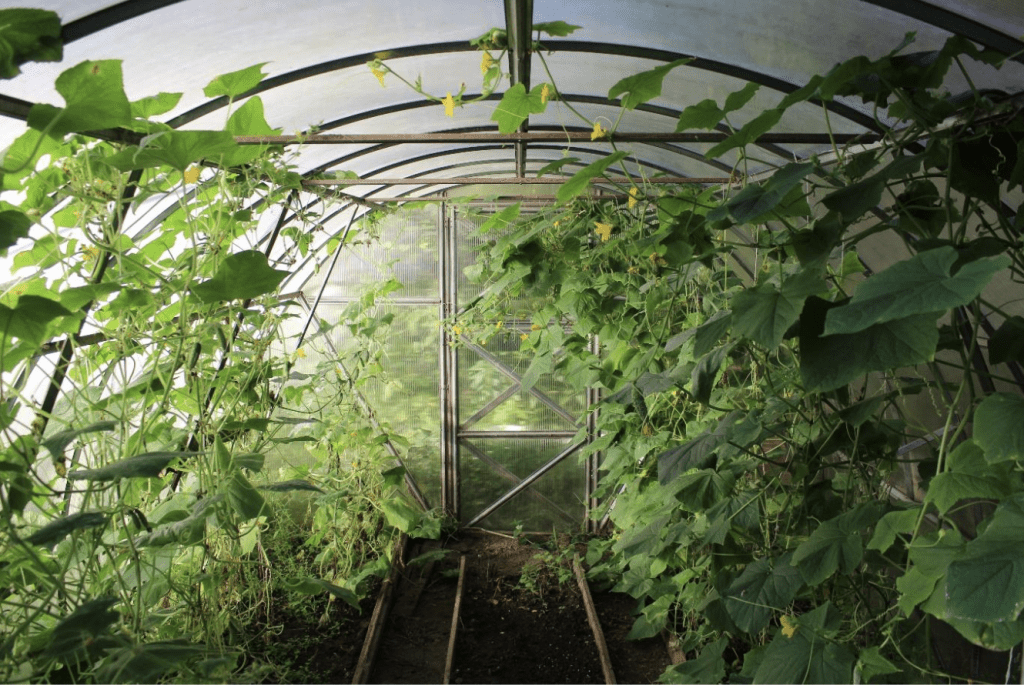
As for buying directly from individual farms, Green Earth Organics, located in Galway, is a great example. The farm is certified by the Irish Organic Association. Everything they sell is 100% organic, with sustainability at the core, by generating their own electricity using solar panels, and by harvesting the West of Ireland rainwater to wash the freshly picked vegetables, and to water the plants in their tunnels.
You simply view the available options on their website, place your order, receive delivery to your home, and start cooking. Easy!
Lastly, you have the option to grow your own organic produce. This can be time-consuming, yet the most rewarding option. You could start small (maybe a windowsill), move to the garden (if available), and possibly invest in a more permanent set-up, like a polytunnel or greenhouse.
I recently purchased and installed a Landmark greenhouse, a superb piece of kit, aesthetically pleasing, and, without doubt, built to last.
I populated the greenhouse with an array of organic and open-pollinated seeds, all sourced from the fantastic Seeds Ireland, such as Broccoli Microgreens (a brilliant source of sulforaphane), Spring Onion, Lettuce, Cherry Tomato, Red Cabbage, Brussels Sprouts, Swede, Radish, Pak Choi, Parsley, and Basil. Seeds Ireland is certified by Organic Trust.
The benefits of using open-pollinated seeds are that these seeds have been around much longer than hybrid or genetically modified seeds, and they have evolved with our environment, meaning the plants they produce are much more genetically diverse, and have a much higher benefit to pollinators, such as bees and butterflies. Another benefit is that you save the seeds that the plant produces at the end of the season, and you plant them the following year.
It is important to document that organic production is a more costly system of food production (producing less food per acre of land, with higher labour costs, including weeding, and relying on natural inputs rather than purchased inputs), and this is then passed on to the consumer. Higher costs are justified for some consumers, who are willing to pay a higher premium for certified organic produce. Bord Bia (the Irish state agency, with the aim of promoting sales of Irish food and horticulture, both in Ireland and abroad) research indicates that consumers are prepared to pay 15 to 20% more for organic food.
A necessary factor to consider is the financial cost of the foodstuff, in relation to the potential health cost of consuming more nutritionally devoid, poor quality products. That said, it is factual to say that many individuals/families simply cannot afford the higher price of organic foodstuffs. Therefore, it’s imperative that organic farming is encouraged/funded at local level, as more sources results in greater competition, thus resulting in a potentially lower cost to the end consumer. Parallel to this, it could be an option for consumers to start adding small amounts of organic foods to their diet, again, once this was financially feasible, and in accordance with their personal choice and natural selection.
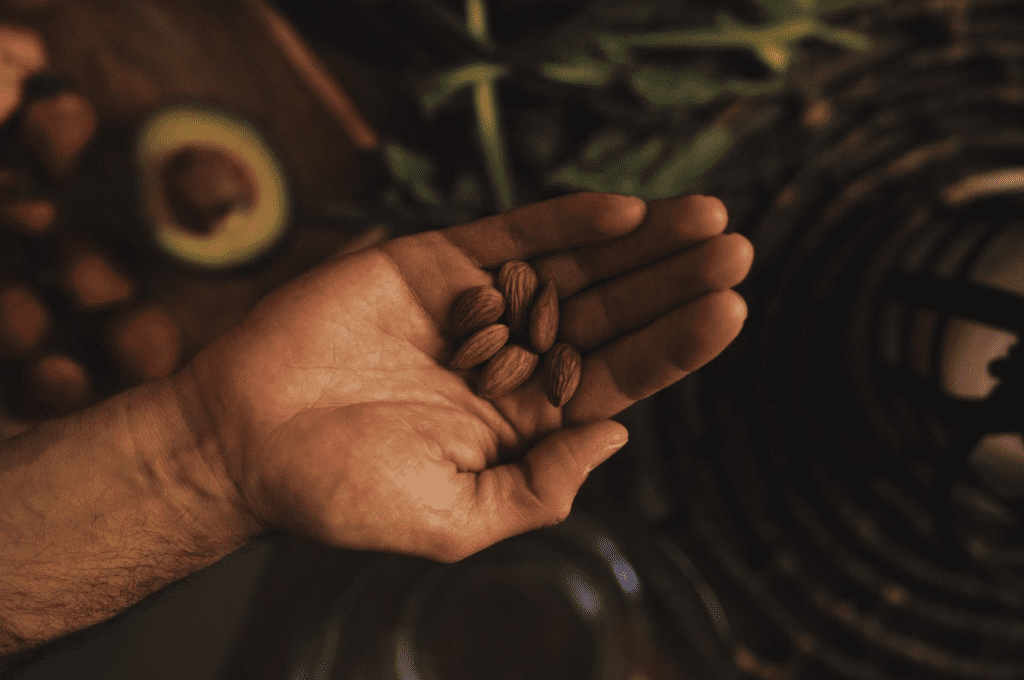
For clarification purposes, I personally have no affiliation/connection with any of the above-mentioned companies/businesses. I have referenced them, purely because I use/have used their services, and have had a real positive experience in doing so.
Conclusion
The power of social interaction and community has become a lot more evident in recent times. As the world gets supposedly smaller, why are more and more people feeling isolated/disconnected?
Maybe the time has come for getting back to basics, reverting to simplicity, ceasing the demand for convenience and disposability, and to start focusing our precious energy on looking after ourselves, turning our backs on the negatives of external validation, and immersing ourselves in, and supporting, our local communities.
So, what are you going to do?
 ALUMNI ARTICLE
ALUMNI ARTICLE
Guest written by IINH Nutrition & Health Coaching graduate, Mark Ryan
You can follow on his website: https://www.nutonics.ie/
References
The United States Department of Agriculture (USDA), the Irish Organic Association (IOA), Organic Growers of Ireland (OGI), www.healthline.com., foodcommunitybenefit.noharm.org., the Guardian, Harvard School Of Public Health, beyondpesticides.org, National Library Of Medicine, WebMD, Community Gardens Ireland, Good Food Ireland, Bord Bia, Seeds Ireland, Rodale Institute.
